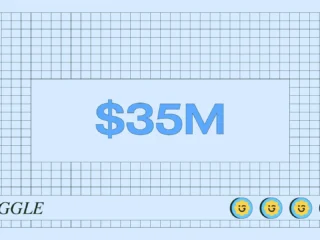Biogen Prepares for Q2 Earnings Report: Key Insights Awaited

Biogen’s Q2 Earnings Are Coming Will It Be a Ramen Reboot or a Sushi Roll Disaster?
All eyes are on Biogen as the biotech giant gears up to drop its Q2 2025 earnings on July 31, before the market clock even hits open. This isn’t just another quarterly update it’s more like the season finale of a medical drama where the lead character (that’s Biogen) has been riding a rollercoaster of generic competition, new drug launches, and partnership plot twists. Last quarter, Biogen missed estimates by 7.4%, and now investors are holding their breath like anime fans waiting for the next Demon Slayer arc. The Zacks Consensus is calling for $2.32 billion in sales and EPS of $3.95 but will Biogen deliver the cure, or will it need a medical timeout?
Watching Biogen right now is like seeing Goku try to cook ramen he’s got the power, but can he follow the recipe without blowing up the kitchen?
MS Drugs The Aging Heroes Facing New Villains
For years, Biogen’s multiple sclerosis (MS) portfolio Tecfidera, Tysabri, and Vumerity — has been the Avengers of its revenue lineup. But like any aging superhero team, they’re facing newer, faster rivals. Tecfidera is getting pummeled by global generic competition, and its projected $178 million in sales (Zacks) might shrink to $173.9 million (model estimate). Tysabri, once the ironclad defender, is seeing biosimilar threats in Europe and possibly the U.S. later this year. Zacks forecasts $373 million, but the model thinks it could hit $395.5 million — maybe a last surge before the storm. Meanwhile, Vumerity is stepping up like the rookie with potential, with sales estimates ranging from $70 million (Zacks) to a wild $181.9 million (model), thanks to rising demand. Can Biogen transition from legacy heroes to a new league of drugs? That’s the billion-dollar question.
Biogen’s MS drugs are like Naruto’s original team legendary, but now they’ve got to pass the headband to the next gen.
Non-MS Growth The Side Characters Stealing the Spotlight
About 45% of Biogen’s product sales now come from non-MS drugs, and that’s where the real plot twist might unfold. Spinraza, used for spinal muscular atrophy, got a first-quarter boost from international shipments — but that’s a one-time sugar rush. Q2 might see a dip, though higher U.S. pricing is helping cushion the fall. Zacks pegs Spinraza sales at $397 million; the model says $403 million — close enough to call it a stalemate. Then there’s Skyclarys, the underdog for Friedreich’s ataxia, growing fast thanks to expansion outside the U.S. Medicare discounts may have slowed U.S. growth, but ex-U.S. markets are stepping up. And don’t sleep on Zurzuvae — the new kid on the block for postpartum depression — showing strong patient uptake and sequential sales growth. These aren’t just side quests; they’re becoming main storylines.
Biogen’s non-MS drugs are like the supporting cast in *One Punch Man* — not the flashiest, but keeping the whole city from collapsing.*
Partnerships The Alliance That Could Save (or Sink) the Mission
No biotech operates alone, and Biogen’s fate is tangled in a web of collaborations. Its tie-up with Sage Therapeutics on Zurzuvae is a shared U.S. venture profits and losses split like ramen broth between best friends. Outside the U.S. (except Japan, Taiwan, and South Korea), Biogen books the sales and pays royalties to Sage. But here’s the twist: Zurzuvae hasn’t been approved in the EU yet a missed opportunity. And now, Supernus Pharmaceuticals is acquiring Sage for up to $795 million. That could shake up the partnership dynamics like a sudden plot twist in Attack on Titan. Will the deal strengthen or destabilize the alliance? Biogen might need to play political ninja to keep this partnership from turning into a corporate civil war.
Biogen’s collaboration game is like ordering boba with a friend — fun until someone changes the order at the last minute.
Leqembi The Rising Star with Super Saiyan Potential
If there’s a breakout character in Biogen’s story, it’s Leqembi the Alzheimer’s drug co-developed with Eisai. Sales have been climbing for three straight quarters, and with approvals in the U.S., Japan, China, and Europe (April 2025), it’s going global like a K-pop tour. A less frequent IV dosing version launched in January 2025, and now a subcutaneous autoinjector is under FDA review decision due August 31. If approved, it could be a game-changer, making treatment way more convenient. While Eisai reports the numbers, Biogen benefits from the upside. This isn’t just a drug it’s a potential franchise that could redefine the company’s future. All signs point to Leqembi being the Goku of Biogen’s pipeline still evolving, but already powerful.
Leqembi is like ramen with extra chashu expensive, but once you try it, you don’t want anything else.
Earnings Track Record, Can Biogen Dodge the Miss Again?
Let’s talk stats. Over the last four quarters, Biogen has beaten estimates three times and missed once not bad for a company in biotech’s pressure cooker. The average earnings surprise is +8.36%, which means it often outperforms, even when expectations are low. But this year, the stock’s down 14%, while the industry’s up 3.2%. That’s like bringing a knife to a laser sword fight. The Earnings ESP (Expected Surprise Prediction) is -0.85%, hinting that Biogen might fall short again. Zacks has EPS at $3.95; the Most Accurate Estimate is slightly lower at $3.91. With a Zacks Rank of #4 (Sell), the market’s not exactly throwing confetti.
Analogy: Biogen’s stock this year is like a vending machine that only dispenses expired snacks — technically working, but nobody’s happy.
The Big Picture Biogen vs. the Biotech Titans
While Biogen fights for relevance, rivals like Eli Lilly (LLY) are sprinting ahead. LLY has a +1.03% Earnings ESP, a Zacks Rank of #3 (Hold), and its stock is up 5.7% this year. It reports earnings August 7 just days after Biogen setting up a direct comparison. If Biogen stumbles and LLY soars, the contrast could be brutal. Investors will be watching not just the numbers, but the narrative: Is Biogen rebuilding, or just surviving?
Comparing Biogen to LLY right now is like watching a shonen underdog train while the champion wins another tournament.
Final Call — To Watch, Wait, or Walk Away?
So, should you tune in for Biogen’s earnings call like it’s the final episode of your favorite anime? Absolutely. This report could signal a turnaround or confirm a decline. With MS drugs fading, non-MS products rising, Leqembi gaining momentum, and partnership drama unfolding, Biogen is at a crossroads. The risks are real, but so is the potential. If Q2 shows strength in new launches and Leqembi’s growth, it could be the start of a redemption arc. But if cash flow sputters and guidance falters, it might be time to hit pause.
Investing in Biogen now is like starting Fullmetal Alchemist mid-series — you might miss some alchemy, but the homunculi are still worth fighting for.
Which one are you watching, Xplorianz? Drop your take on the most underrated pick this week in the comments!. Slide into our inbox Facebook, or tag us on X . Stay sharp, stay weird, and keep Xploring
Disclaimer:
This article is for informational and entertainment purposes only and does not constitute financial advice. Always do your own research (DYOR) before making any investment decisions, your money, your call. Crypto’s wild, so stay sharp out there!
Read More:
OpenSea Acquires Rally: Big Moves for a Mobile-First Web3 Future









No Comments